★★
“Banda on the run.”
 It has been a while since I’ve scraped the bottom of the barrel of Mexploitation cinema: all those telenovelas don’t count, generally being well-produced and with reasonable production values. Just how reasonable is brought home by comparing them to this… Admittedly, I had to cope with it being entirely in Spanish with no subtitles. I kinda hoped that watching north of four hundred episodes of Hispanic TV would magically instill in me the ability to speak Spanish. Turns out, this is not the case. Who knew? But I think I am on fairly safe ground in declaring this a bargain basement comedy-action cross, which exists to provide PG-rated titillation as much as thrills or laughs.
It has been a while since I’ve scraped the bottom of the barrel of Mexploitation cinema: all those telenovelas don’t count, generally being well-produced and with reasonable production values. Just how reasonable is brought home by comparing them to this… Admittedly, I had to cope with it being entirely in Spanish with no subtitles. I kinda hoped that watching north of four hundred episodes of Hispanic TV would magically instill in me the ability to speak Spanish. Turns out, this is not the case. Who knew? But I think I am on fairly safe ground in declaring this a bargain basement comedy-action cross, which exists to provide PG-rated titillation as much as thrills or laughs.
I’m informed this is the second in a series, which has reached at least three entries (though only this one can be found in the IMDb), so there appears to be sufficient of a local market to justify its existence. It seems to start with the good girls – Los Bikinis Rosas, who do indeed wear pink bikinis – celebrating with their boss after another successful mission. But it’s not long before they are called into action again, going up against the bad-girl gang, the Cobras Negras, for possession of a microchip which… presumably can do something or other of importance. That bit was lost in translation (or lack thereof). No prizes for guessing what shade of bikinis are preferred by the Negras.
This colour co-ordination is probably a good thing, since the four women on each side are almost entirely interchangeable in appearance. The Rosas have a token blonde, while the Negras have a girl in glasses, who is presumably the evil nerd of the bunch or something. [I was basically making up my own plot there.] As appears semi-customary, a masked wrestler shows up, in this case the Rosas getting their training from Huracán Ramírez. Which is impressive, since he died seven years prior to this film’s 2013 release. This would not have fazed the Mexican audience. Luchadors, particularly the masked ones, tend to be near immortal, with characters being passed down the generations, sometimes as “el Hijo de” (the son of), or simply by taking over the mask, as appears the case here.
It’s not very interesting, and has horrible pacing. For example, the Negras seem to have their headquarters located in a basement below a food court at the back of a mall. So, we get to see them – apparently in real time – going through the mall… taking the elevator to the basement… and walking from there to the room in question. It’s a sequence even more gratuitously padded than the characters’ bras. The same goes for the lengthy aerobic exercise training sequence, during which the camera appears fixed, with dedication that’s border-line impressive, on the actresses’ chests and butts. The action is not great either, though is likely stellar in comparison to the stabs at comedy, which appear mostly to consist of a flamboyant homosexual.
Half a star of this is credit for my shortcomings in Spanish, which are likely responsible for some of the issues. While her translation skills may have been helpful, I just couldn’t bring myself to inflict this one on Chris, even though her derisive snorts would have been truly epic to behold.
Dir: Julio Aldama Jr.
Star: Julio Aldama Jr., America Ramírez, Julio Zaizar, Coco Rojo





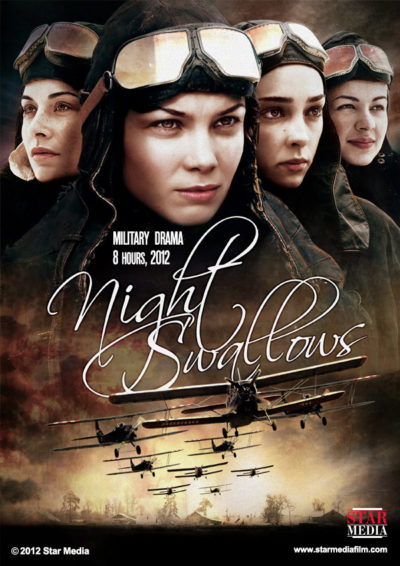 This week, we’ve been focusing on Soviet military heroines of World War II, and as well as
This week, we’ve been focusing on Soviet military heroines of World War II, and as well as 
















 I stumbled across this Russian TV series on Amazon Prime during our annual freebie month, but not until the final weekend, so wasn’t able to watch it there. Happily, I discovered the entire show has been uploaded to YouTube – embedded below, complete with English subtitles – and it’s well worth a watch. It’s set during World War II, and tells the story of two young women, from diverging backgrounds, both of whom are recruited in 1941, somewhat unwillingly. to act as intelligence operatives, during the early day
I stumbled across this Russian TV series on Amazon Prime during our annual freebie month, but not until the final weekend, so wasn’t able to watch it there. Happily, I discovered the entire show has been uploaded to YouTube – embedded below, complete with English subtitles – and it’s well worth a watch. It’s set during World War II, and tells the story of two young women, from diverging backgrounds, both of whom are recruited in 1941, somewhat unwillingly. to act as intelligence operatives, during the early day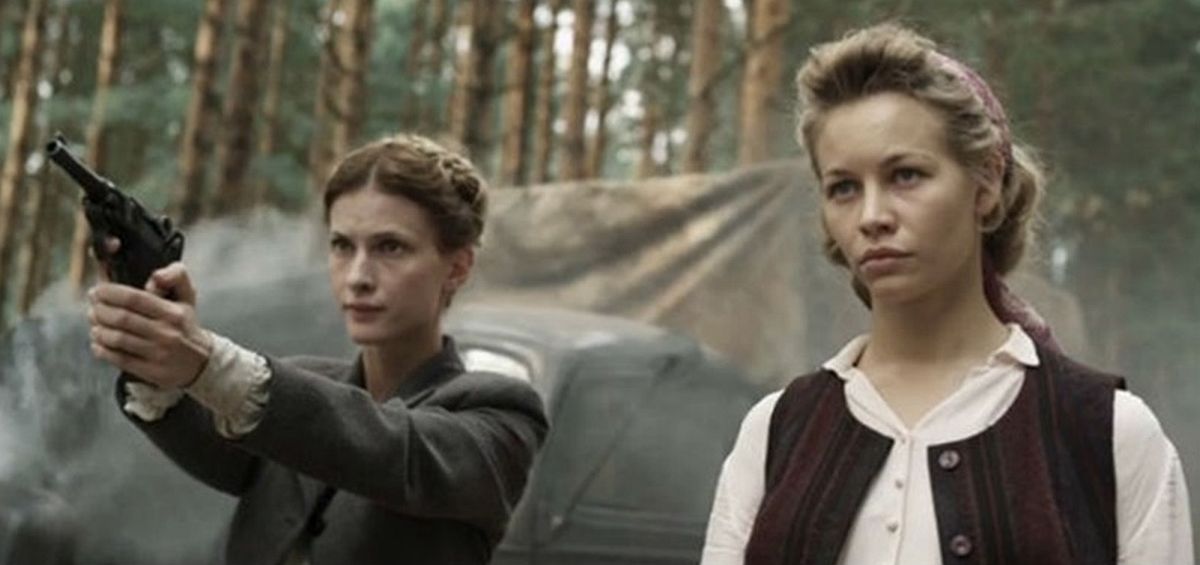
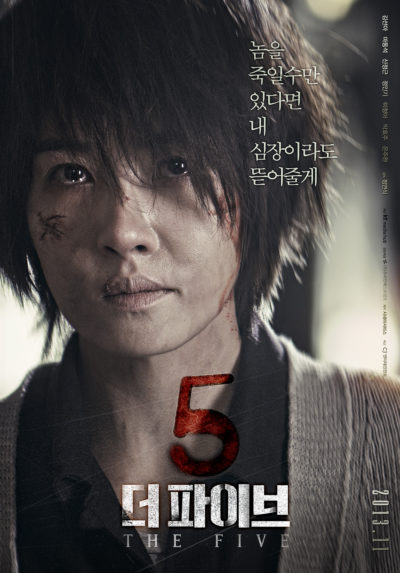 A chance encounter in a convenience store destroys the life of Go Eun-ah (Kim). For her young daughter accidentally sees serial killer Oh Jae-wook (On) abducting his next victim. Realizing he has been spotted, Jae-wook carries out a brutal home invasion, killing both the daughter and Eun-ah’s husband, and leaving her permanently paralyzed. But he has reckoned without Eun-ah’s fortitude. She devotes the rest of her life to tracking down her attacker, and puts together a team of four to help her. All need transplants, for them or their family. So Eun-ah has promised that once Jae-wook has been captured, delivered to her and killed, she will give them her organs. Damn. That’s what I call “fully committed”… But when Jae-Wook realizes he is being hunted, he turns his attentions on the hunters.
A chance encounter in a convenience store destroys the life of Go Eun-ah (Kim). For her young daughter accidentally sees serial killer Oh Jae-wook (On) abducting his next victim. Realizing he has been spotted, Jae-wook carries out a brutal home invasion, killing both the daughter and Eun-ah’s husband, and leaving her permanently paralyzed. But he has reckoned without Eun-ah’s fortitude. She devotes the rest of her life to tracking down her attacker, and puts together a team of four to help her. All need transplants, for them or their family. So Eun-ah has promised that once Jae-wook has been captured, delivered to her and killed, she will give them her organs. Damn. That’s what I call “fully committed”… But when Jae-Wook realizes he is being hunted, he turns his attentions on the hunters. Winner of the “Most misleading DVD cover of the year” award, the gap between expectation and reality has rarely been wider. It starts off promisingly enough, with young woman Kayla (Fairaway), carrying a bow and running away from a man in a car. She’s rescued by a passing motorist, but they are run off the road by their pursuer. There’s then a flashback, to explain how these events came about. Which would be fine, except for the flashback lasting close to an hour and a quarter of thoroughly mind-numbing chit-chat, before anyone even picks up a bow in anger. It’s not
Winner of the “Most misleading DVD cover of the year” award, the gap between expectation and reality has rarely been wider. It starts off promisingly enough, with young woman Kayla (Fairaway), carrying a bow and running away from a man in a car. She’s rescued by a passing motorist, but they are run off the road by their pursuer. There’s then a flashback, to explain how these events came about. Which would be fine, except for the flashback lasting close to an hour and a quarter of thoroughly mind-numbing chit-chat, before anyone even picks up a bow in anger. It’s not  This sequel is almost entirely unrelated to the original, beginning with a new, fresh character who will be tortured within an inch of her life, before escaping and roaring back for revenge. However, it manages to be a little more coherent, even as it replaces the redneckophobia of the original, with much more straightforward xenophobia.
This sequel is almost entirely unrelated to the original, beginning with a new, fresh character who will be tortured within an inch of her life, before escaping and roaring back for revenge. However, it manages to be a little more coherent, even as it replaces the redneckophobia of the original, with much more straightforward xenophobia.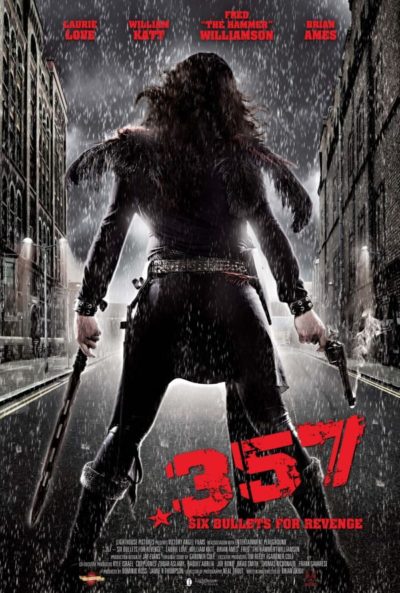 It wasn’t until the end, when the credits ran and I saw someone’s name I knew, that I realized this was actually a local production, shot here in Phoenix. Maybe I should have been paying more attention, or maybe that just speaks to the bland lack of place present in this low-budget Crow knock-off. For, despite the poster which is obviously riffing off another comic-book movie, this one is clearly inspired by Alex Proyas’s cult classic. I am, however, pleased to report that the lead star here did actually make it through the entirety of production with a pulse, so they come out ahead of their inspiration in that department.
It wasn’t until the end, when the credits ran and I saw someone’s name I knew, that I realized this was actually a local production, shot here in Phoenix. Maybe I should have been paying more attention, or maybe that just speaks to the bland lack of place present in this low-budget Crow knock-off. For, despite the poster which is obviously riffing off another comic-book movie, this one is clearly inspired by Alex Proyas’s cult classic. I am, however, pleased to report that the lead star here did actually make it through the entirety of production with a pulse, so they come out ahead of their inspiration in that department.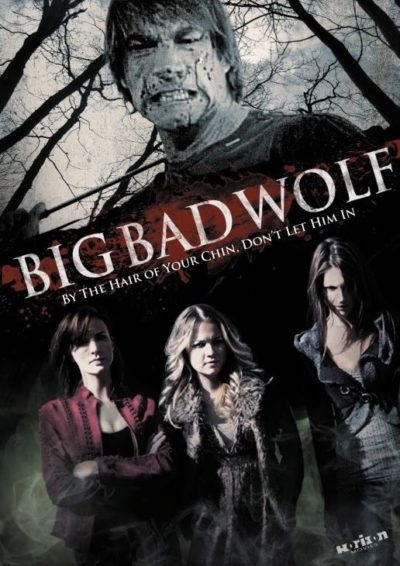 A modern-day update of The Three Little Pigs, this works better than you might think. The wolf is “Huff” (O’Connell), a really warped individual whose interests appear to be religion, drugs and molesting his three step-daughters. Bit of an odd combination. Their mother, Lorelei (Elina Madison), is a largely absent stripper, who seems not to care too much that her boyfriend’s attention have now turned from her oldest daughter, Brixi (Bollinger), to the youngest one, Shay (Stefanko). But when Huff prepares his big score, using cash “borrowed” from his mistress’s ex-husband (or something like that – the relationships here are so complicated, you need a chart to keep track), Lorelei sees her opportunity, sending the three girls away with the money. That leaves Huff in serious trouble, and he’s soon after them, intent on retrieving the cash. Huff is indeed going to puff… on his asthma inhaler.
A modern-day update of The Three Little Pigs, this works better than you might think. The wolf is “Huff” (O’Connell), a really warped individual whose interests appear to be religion, drugs and molesting his three step-daughters. Bit of an odd combination. Their mother, Lorelei (Elina Madison), is a largely absent stripper, who seems not to care too much that her boyfriend’s attention have now turned from her oldest daughter, Brixi (Bollinger), to the youngest one, Shay (Stefanko). But when Huff prepares his big score, using cash “borrowed” from his mistress’s ex-husband (or something like that – the relationships here are so complicated, you need a chart to keep track), Lorelei sees her opportunity, sending the three girls away with the money. That leaves Huff in serious trouble, and he’s soon after them, intent on retrieving the cash. Huff is indeed going to puff… on his asthma inhaler. There are times when a film doesn’t deliver anything close to what the sleeve promises. This would be one of those times. However, in this case, while disappointed, I can’t claim it was an entire waste of my time. Or, at least, it wasn’t a waste of very
There are times when a film doesn’t deliver anything close to what the sleeve promises. This would be one of those times. However, in this case, while disappointed, I can’t claim it was an entire waste of my time. Or, at least, it wasn’t a waste of very 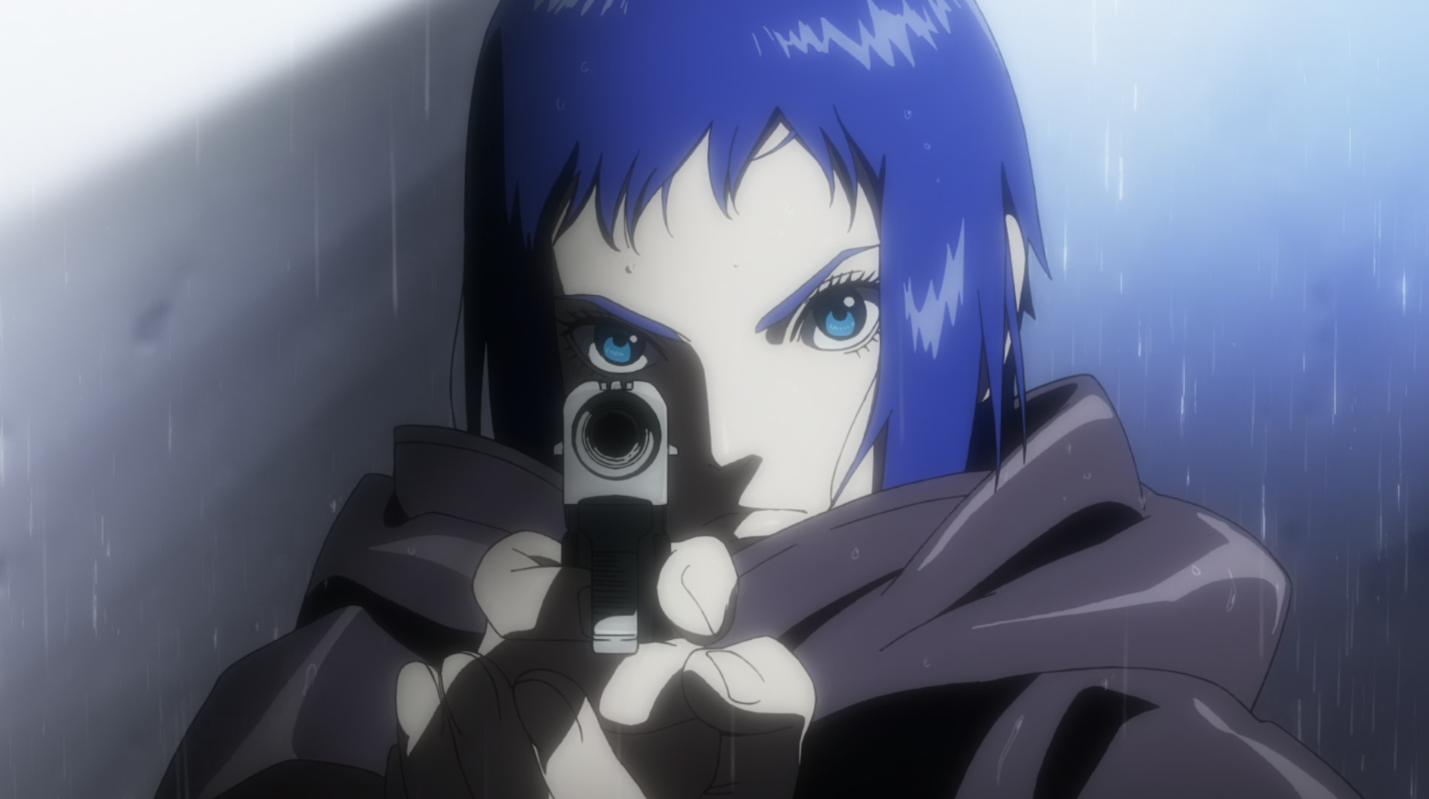 ★★★★
★★★★ Over the course of the four episodes, she recruits others whose names will be familiar. For example, ex-Ranger Batou (Sabat), comes aboard after initially being part of a team working against Kusanagi, who are trying to prove government complicity in war crimes. This is an interesting change, compared to the previous versions, which always seemed to join Section 9 “in progress,” and provides some intriguing insight into what makes – literally, to some extent – the Major the way she is. For, in this incarnation, we discover that she has been in her prosthetic body since birth, and has never known any other way of life.
Over the course of the four episodes, she recruits others whose names will be familiar. For example, ex-Ranger Batou (Sabat), comes aboard after initially being part of a team working against Kusanagi, who are trying to prove government complicity in war crimes. This is an interesting change, compared to the previous versions, which always seemed to join Section 9 “in progress,” and provides some intriguing insight into what makes – literally, to some extent – the Major the way she is. For, in this incarnation, we discover that she has been in her prosthetic body since birth, and has never known any other way of life.